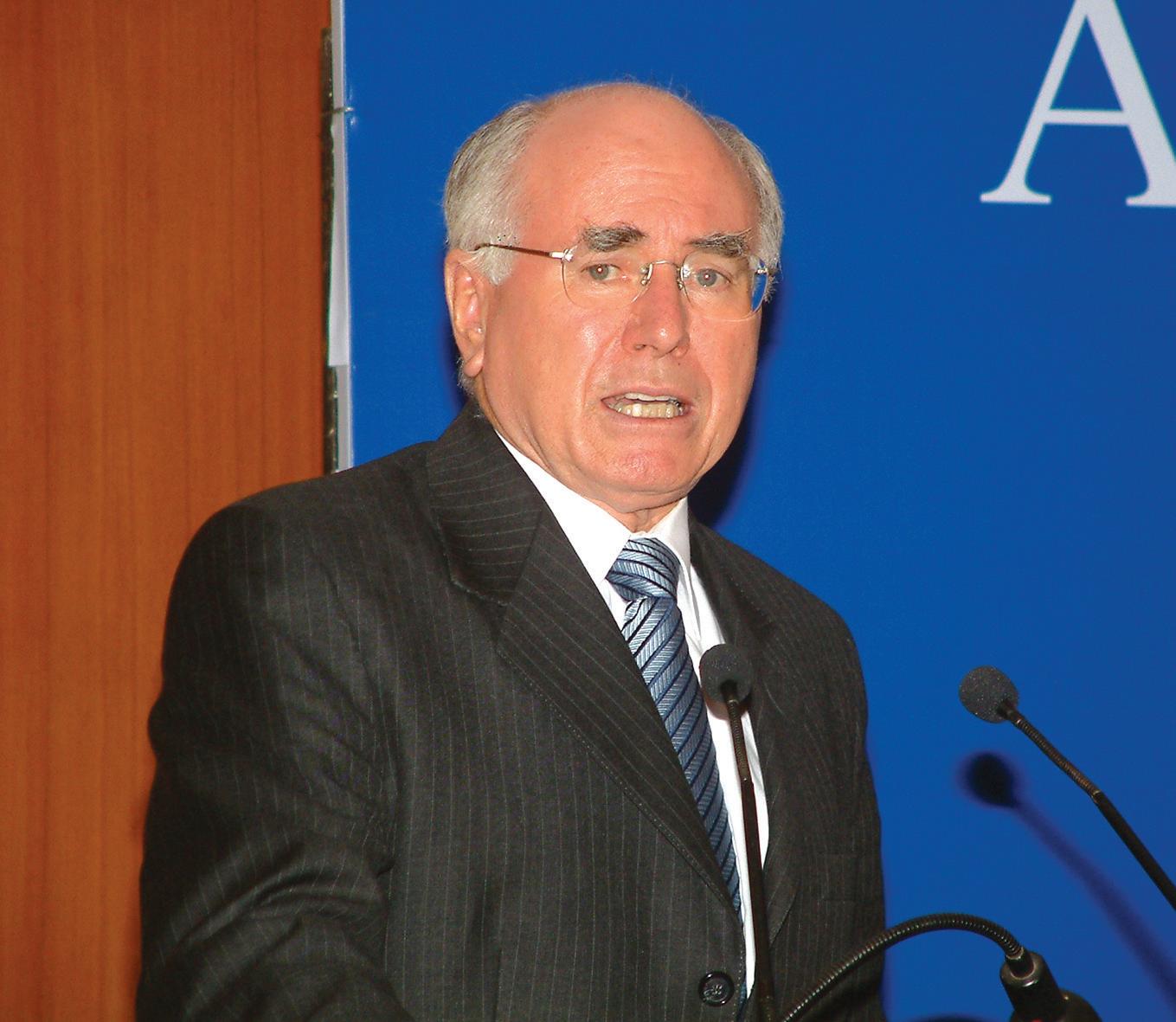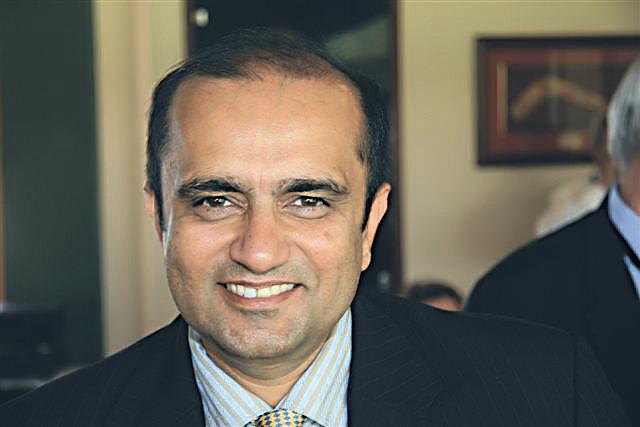
5 minute read
Argy bargy - no Haanji, Haanji
from 2010-07 Melbourne
by Indian Link
BY DARSHAK MEHTA
There has been an outpouring of indignation in Australia at the perceived snub to former Prime Minister John Howard in his effort to be elected as the Vice President of the International Cricket Council (ICC).
As is usual, if anything happens in the ICC which is not to Australia’s liking, India is bucketed in the Australian media. In this instance, India was accused of sabotaging Howard’s election - which Australia expected to be a mere formality.
And, in India, the commentary has been far from deferential or objective – to the extent of labelling Howard a racist etc.
What is lost sight of in all this is: the six countries who opposed Howard’s nomination did him a grave disservice by refusing to even let him address them and, worse, have still not communicated why they opposed his nomination?
Good manners would have called for at least a patient hearing being afforded to the man and it would have been constructive and enlightening if the real reason(s) for opposing Howard had been spelt out.
Let it not be forgotten that it was the turn of Australasia to nominate a Vice-President, who, two years on, would slot in as President of the ICC. The others on the ICC were expected to endorse the choice, once Australia and New Zealand presented their candidate.
That this was “welshed” on by the secret 7 (six opponents plus the sly orchestrator, Zimbabwe, who abstained) is a regrettable occurrence.
However, not a lot of journalists have addressed one fundamental question: Why, of all people, was John Howard drafted to be the Australasian candidate?
Why not anyone from the Australian or New Zealand cricket establishment? Why not a senior Cricket Australia (CA) Director?
Of course, the ICC is the ultimate boys’ club and a closed shop. Entry into the rarefied Board is reserved only for the elite – Chairman or Presidents of national cricket boards.
It appears that even at the last minute, BCCI President Shashank Manohar told CA Chairman Jack Clarke that India was prepared to vote for Clarke or Alan Isaac - the Chairman of Cricket New Zealand, but not for Howard
These “boys” did not want Howard. Maybe, they took offence at the suggestion that Howard was being sent as a “counter-balance” to India or to “clean up” the ICC.
Maybe, the message they were sending Australia and New Zealand was: nominate one of “our” own – do not go outside of the cricket administration of your country to inject an “external” candidate (such as Howard), who has no prior experience of the ICC or indeed cricket administration at the local, state or national level in your country.

Incidentally, it could be argued that it was New Zealand’s turn to nominate its man as Australia has already had its candidate head the ICC in the recent past (Malcolm Gray from 2000 to 2003), unlike New Zealand.
Sir John Anderson of New Zealand would have made an outstanding ICC President and is a highly respected businessman and administrator who has been involved in cricketing affairs for a long time.
But that was not to be. Australia “prevailed” upon (bullied?) its small neighbour to let it nominate Howard - after a process which involved arbitration.
Everyone says that it was India which was responsible for Howard’s end. But, this is just speculation. On the face of it, India has merely one vote and the BCCI has a very close relationship with Cricket Australia.
So, what happened?
In the absence of any hard facts, this is merely conjecture: Zimbabwe were definitely the prime opponent of Howard as a pay-back for his strong and justified stand in the past against Mugabe the scourge and despot.
South Africa usually hold Zimbabwe’s proxy, so, they did what Zimbabwe presumably desired and besides, surely they would have remembered that Howard was not their greatest supporter during the apartheid era.
It could be argued that Pakistan and Bangladesh are Islamic countries who may have viewed Howard as a war-monger for having actively colluded with President Bush and sending Australian troops to the Islamic lands of Iraq and Afghanistan.
We know all of Sri Lanka was upset when Howard labelled their national treasure, Muralidharan, a chucker, so, they certainly weren’t going to welcome him enthusiastically into this boys club.
West Indies went along with their black and brown brothers – the majority and where the big money was going.
We then come to India. It appears that even at the last minute, BCCI President Shashank Manohar told CA Chairman Jack Clarke that India was prepared to vote for Clarke or Alan Isaac - the Chairman of Cricket New Zealand, but not for Howard.
This was unacceptable to CA.
My theory is that India were prevailed upon by the likes of Zimbabwe and South Africa (who, in the past, have strongly supported India in the ICC Committee room), to oppose the nomination of Howard.
Old IOUs were encashed. It could be as simple as that.
This despite the fact that incoming ICC President Sharad Pawar, had, about a month ago, urged the 10 voting members to honour the ICC’s new rotation policy for selecting the next President, and predicted that this would be ‘’unanimously supported’’.
Mr Pawar had committed not only to support the process but support the candidature of Mr Howard.
The fact that his own Board did not do so should be troubling for Pawar and signifies that his influence could be rapidly waning.
Under the circumstances, Cricket Australia are bound to feel betrayed and frustrated that their candidate, who they could have reasonably expected to be “rubber stamped” was instead, summarily and insultingly rejected and they had no prior inkling of it from their great ally, the BCCI.
The lesson that Australia needs to learn from all this is that it needs to be more respectful of the sentiments of the majority of the ICC and nominate a person who is non-controversial and universally acceptable.
It is not as if Australia and England are running the show as they did until 1992 with a veto et al.
The big elephant in the room contributes almost 80% of the revenues of the ICC and as they say, “he who pays the piper, calls the tune”.
Mark Taylor who is a Director of Cricket NSW as well as Cricket Australia has this job written all over him and it is his to be refused.
Allan Border too could do it well – not to mention, the redoubtable Steve Waugh.
However, these worthies would have to forego lucrative commercial or broadcasting careers and spend more time away from their families and I am not sure that they reckon the headaches and politics of the ICC would justify their sacrifice.
Post Script: It is sad that John Howard made a trip to South Africa to seek the support of Dr Mtutuzeli Nyoka, the President of Cricket South Africa. He was reportedly snubbed – Dr Nyoka chose to go to a World Cup Football game, instead.
Howard also went to Harare to meet Peter Chingoka, the controversial boss of Zimbabwean Cricket.
There is a thin line between extending an olive branch and compromising your self respect!









